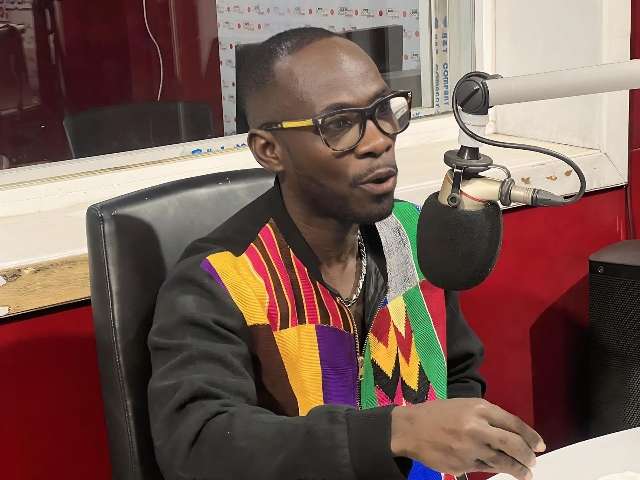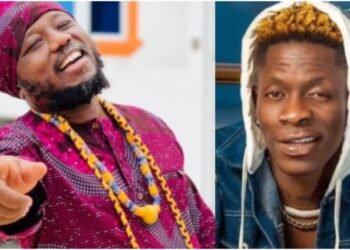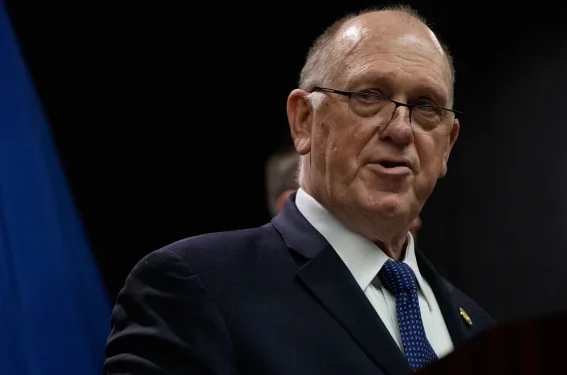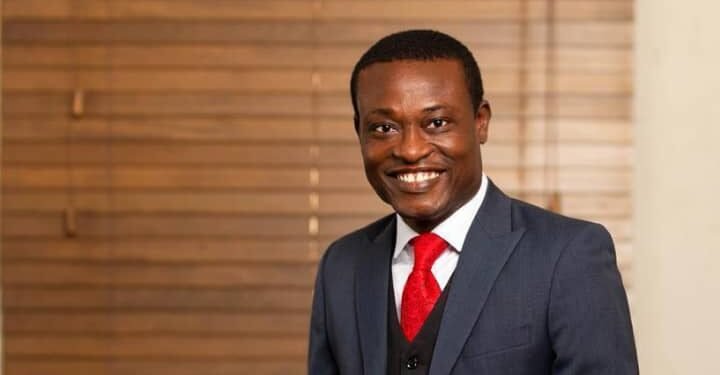In an increasingly interconnected world, the forces of globalization have brought both opportunities and challenges to nations, particularly in the realm of cultural education.
For Ghana, a country rich in cultural diversity and heritage, the need to preserve its unique identity amidst these global influences has never been more pressing.
Cultural education—an approach that integrates the teaching of local traditions, languages, history, and values into the school curriculum—emerges as a vital strategy for safeguarding Ghanaian identity.
Ghanaian rapper, Okyeame Kwame, has urged a deeper national conversation about how traditional practices are portrayed, especially within educational spaces and the creative industries.
The rapper recounted a personal story involving his son’s classroom experience with an art teacher. The topic was body painting, but the language used struck a nerve.
“I think they were discussing body painting and what it was used for. And the art teacher said that when a priest paints himself, he is invoking evil spirits. And then my son thought back and said, No, no, no, it is not fetish. It is a traditional priest. Once you call it a fetish, you have marginalised it.”
Okyeame Kwame
He emphasized that such mischaracterizations do more than distort facts; they strip vital cultural roles of their dignity and legitimacy.
“And how is it that the priest, the person telling people to clean their cities, advising the chief, who knows herbs, and understands the culture, and is a custodian of traditional artifacts and wisdom? How is he using bad spirits to do good things in the community? So this is what I was talking about.”
Okyeame Kwame

The incident, he said, highlights the need to integrate Ghana’s cultural context into the school system properly.
“I think that it is very, very important that we get to understand our tradition well. Cultural relevance and its nuances must be taught in schools so that we understand who we are. Because without that, our identity is lost in this whole cosmopolitan matrix.”
Oyeame Kwame
Cultural education serves as a foundation for understanding and appreciating the diverse histories and traditions that shape a nation. Ghana is home to over 70 ethnic groups, each with its unique customs, languages, and histories.
By incorporating cultural education into the curriculum, schools provide students with a comprehensive understanding of their heritage.
This understanding fosters a sense of belonging and pride in one’s identity, which is crucial in a world where cultural homogenization threatens to dilute local traditions.
For instance, teaching students about the rich history of the Ashanti Empire, the significance of traditional festivals like Homowo, and the importance of proverbs in Ghanaian culture instills a sense of pride in their heritage.
When students learn about their roots, they are more likely to value their culture and resist negative external influences that lead to cultural erosion.
Promoting Social Cohesion Through Cultural Education

Ghana’s strength lies in its diversity, but this diversity also leads to misunderstandings and conflicts if not properly managed. Cultural education plays a pivotal role in fostering social cohesion among the country’s diverse ethnic groups.
By learning about each other’s cultures, students develop empathy and appreciation for the differences that exist within their society.
For example, incorporating lessons that highlight the customs and traditions of the Ewe, Dagbani, and Akan peoples, among others, helps students recognize the commonalities that bind them as Ghanaians.
Such educational initiatives reduce stereotypes and foster a more inclusive society where individuals celebrate their differences rather than view them as barriers.
The rapper called for deliberate cultural representation in modern creative expressions, including music, digital media, film, and fashion.
According to him, chieftaincy and local customs must move beyond ceremonial appearances and become living parts of everyday life. “Bringing chieftaincy into pop culture is crucial. If our music, visuals, and storytelling can project our traditions in relatable and modern ways, we will help the next generation understand who they are,” he said.
He cautioned against allowing modern institutions and media to erode cultural heritage.
“If we continue to allow our institutions and our media to dilute or shame our cultural symbols, we risk losing our soul as a people. It’s not enough to celebrate culture on Independence Day alone. It must be an everyday reality.”
Okyeame Kwame
He further challenged artists and creatives to revitalize traditional identity through innovative storytelling. “Our culture is not outdated. It is rich, it is meaningful, and it can be ‘cool’ if presented creatively. Let’s make chieftaincy ‘cool’ again,” he averred.

Equipping students with knowledge about their culture is not only about preserving the past; it is also about empowering them to navigate the future confidently.
In an age where cultural identities are often challenged by external influences, instilling a strong sense of cultural awareness helps students become advocates for their heritage.
Moreover, cultural education inspires creativity and innovation. When students are aware of their cultural narratives, they draw upon these stories to inspire artistic expressions, entrepreneurship, and community engagement.
This not only enriches their educational experience but also contributes to the broader cultural economy, as students become agents of change who promote and preserve their heritage in a modern context.
The integration of cultural education in Ghanaian schools is not merely an academic enhancement; it is a vital necessity for preserving the nation’s identity in the face of globalization.
As educators, policymakers, and communities come together to champion this cause, they will be investing in a future where Ghanaian culture thrives, ensuring that the rich tapestry of traditions, histories, and values continues to be celebrated and passed down through generations.
Embracing cultural education is not just about looking back; it is about forging a path forward that honors the past while embracing the future.
READ ALSO: Landed Property Bail Faces Legal Scrutiny Amid Issues of Fairness, Accountability






















